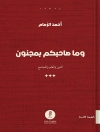In ‘Eugenics and Other Evils, ‘ G. K. Chesterton presents a fervent critique of the early 20th-century eugenics movement, meticulously dissecting its philosophical foundations and socio-political ramifications. Employing his characteristic wit and incisive logic, Chesterton explores the dangers of applying mechanical principles to human life, advocating for the intrinsic value of individuality over collectivist ideologies. This polemic not only situates itself within the historical context of a burgeoning eugenics discourse but also stands as a timeless reflection on the moral complexities inherent in social engineering and the commodification of human potential. G. K. Chesterton, a prolific writer and thinker, drew from his diverse experiences as a journalist, theologian, and philosopher to craft this incisive work. His deep-rooted beliefs in Christianity and human dignity fuel his arguments against eugenics, as he posits that humanity’s worth transcends mere biological determinism. Having witnessed the socio-economic turmoil and ideological extremities of his time, Chesterton was compelled to champion the cause of the marginalized, emphasizing the dire consequences of dehumanization and mechanistic thinking. ‘Eugenics and Other Evils’ is an essential read for those who seek to understand the moral implications of societal frameworks on human life. Chesterton’s provocative insights offer valuable lessons in safeguarding human dignity against the encroaching shadows of reductionism and utilitarianism. This book is a clarion call for an ethical examination of our approaches to societal progress, making it indispensable for scholars, ethicists, and anyone concerned with the future of humanity.
Mengenai Pengarang
G. K. Chesterton, born Gilbert Keith Chesterton on May 29, 1874, in Kensington, London, is widely regarded as one of the most prolific English writers of the 20th century. His literary output includes a diverse range of genres, encompassing philosophy, theology, detective fiction, and social criticism. Chesterton’s engaging prose and insightful commentary have endowed him with a timeless appeal. Best known for his fictional priest-detective character, Father Brown, Chesterton’s influence extends beyond fiction to include thought-provoking treatises on various societal concerns. One such work, ‘Eugenics and Other Evils’, casts a critical eye on the eugenics movement, highlighting the philosophical and moral shortcomings of the practice. His persuasive arguments underscore the inherent value of human life and dignity, reflecting his commitment to Christian ethics and social justice. In addition to his polemical writings, Chesterton’s literary style is characterized by sharp wit, paradox, and a deep sense of humor, all of which pervade his extensive body of work. His contributions to literature and thought were recognized in 1934 when he was knighted by King George V. Chesterton’s enduring legacy is evidenced not only by his significant bibliography but also by the ongoing relevance and insight of his commentary on human nature and society.












